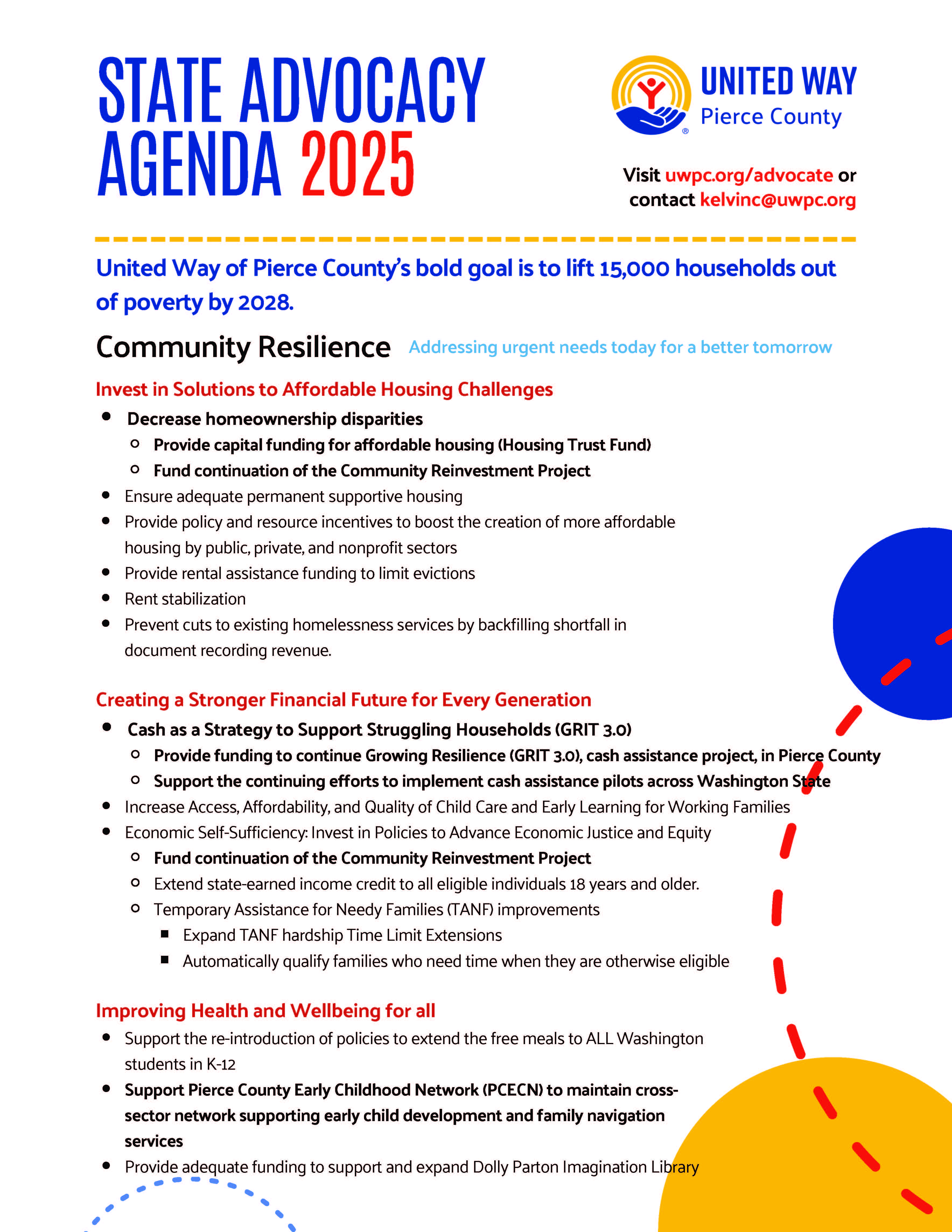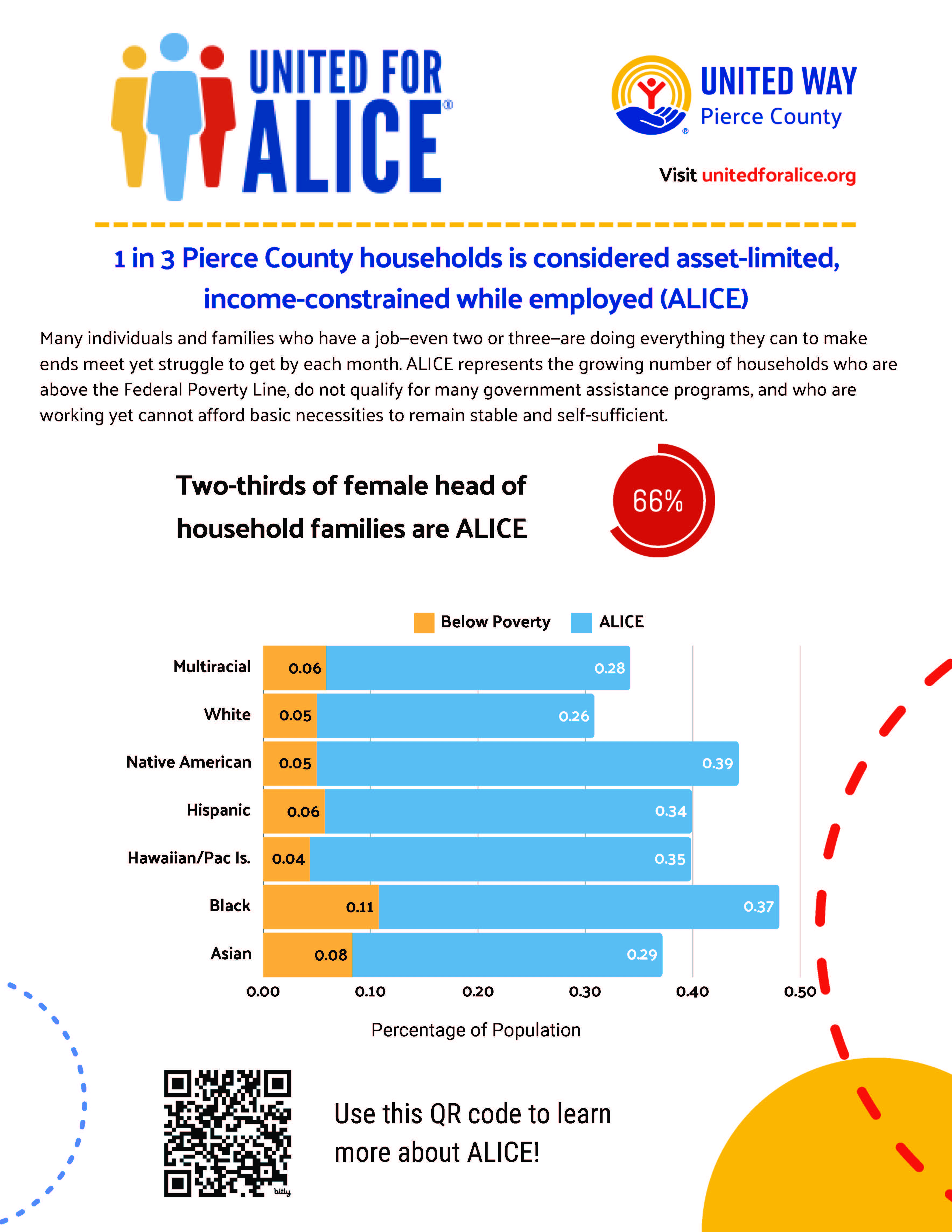ADVOCACY
Why Advocacy is Essential to United Way of Pierce County's Work
Our mission is to help individuals and families thrive, particularly those who are living paycheck to paycheck in the ALICE population — Asset-Limited, Income-Constrained, Employed. While direct support and community programs are critical, one of the most powerful tools we have to create lasting change is advocacy.
The Power of Policy to Impact Change
ALICE households are often caught in a cycle where they are working hard but still struggling to make ends meet. From high housing costs to insufficient wages, the barriers these families face are often shaped by policies and systems that need to change. Advocacy allows us to push for policy solutions that address the root causes of poverty and economic instability.
Whether it's advocating for affordable housing, better wages, expanded healthcare access, or improved educational opportunities, legislative action can have a sweeping impact that lifts entire communities. By influencing lawmakers and decision-makers, United Way works to create a more equitable and sustainable future for ALICE families — one where they can not only survive but truly thrive.
Join us in advocating for policies that make a difference. Your voice can help us push for a future where every family has the opportunity to achieve financial security and success.
Washington State Legislators Website
Moving ALICE Families from Struggling to Thriving
Our advocacy focus on:
- Raise the income threshold so that working families can earn enough to meet their basic needs without falling deeper into poverty.
- Expand access to essential services, such as childcare, transportation, healthcare, and affordable housing, which are often out of reach for ALICE households.
- Strengthen workforce development programs to help individuals gain the skills and opportunities needed to advance in their careers and improve their financial stability.
- Support policies that create a more inclusive economy, ensuring that no one is left behind because of their race, gender, or background.
Through these efforts, we work to break down the systemic barriers that keep ALICE families from achieving financial stability and self-sufficiency. Legislative advocacy is not just about supporting specific laws; it’s about shaping the future to ensure every person, regardless of their circumstances, has the opportunity to thrive.
Listening to Those with Lived Experience
UWPC invests time in gathering community feedback on challenges and solutions through community conversations. By actively involving individuals with lived experience, we can ensure that proposed solutions are relevant and targeted to the specific needs of ALICE households. Advocacy that genuinely listens to people with lived experience is more likely to create sustainable change. When policies are co-designed with those most impacted, it’s more likely that those policies will align with community priorities and be embraced by those they are meant to help.
Incorporating the voices of those with lived experience in advocacy efforts isn’t just a matter of fairness; it’s a matter of effectiveness and justice. When we listen to those who are living the realities we seek to change, we create better policies, build stronger communities, and ensure that the solutions we advocate for are the right ones. Their voices should not just be heard — they should be central to the change we aim to create.
Why Your Voice Matters!
Our advocacy efforts are most effective when we have the support of people like you. By engaging with local, state, and federal lawmakers, advocating for fair policies, and spreading awareness about the challenges ALICE households face, we can build a stronger coalition for change. Together, we can create lasting solutions that ensure families don’t just survive but thrive.



